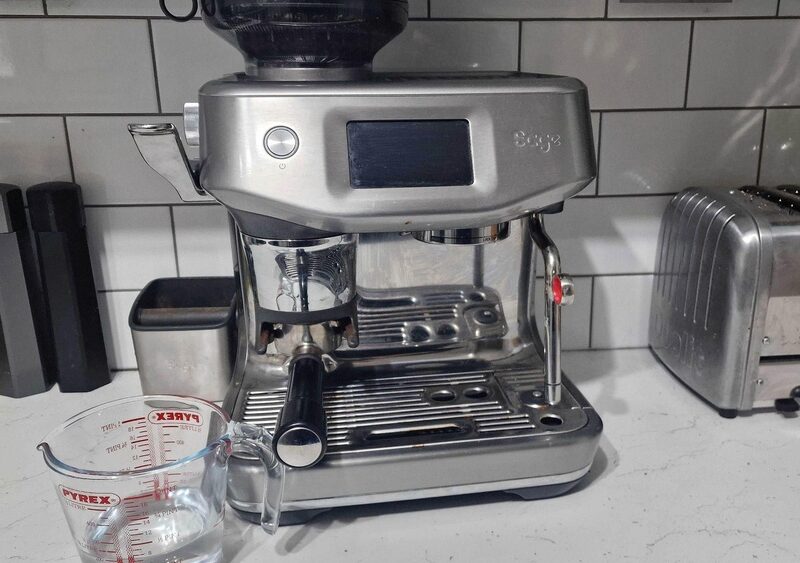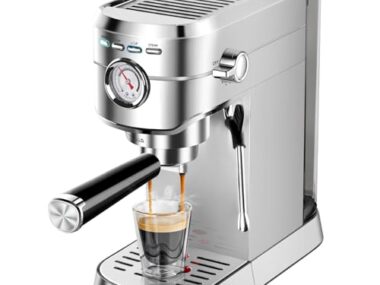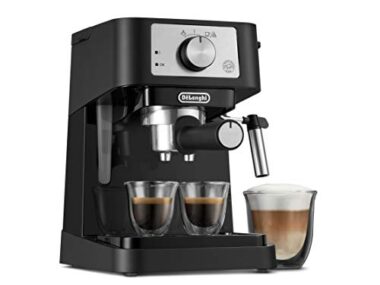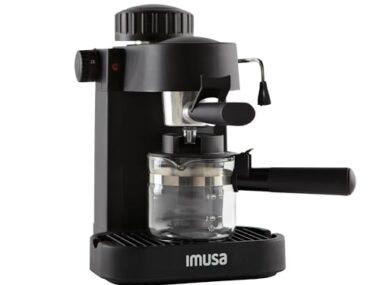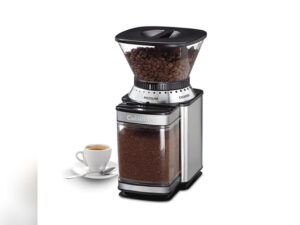If you love your daily cup of coffee, keeping your coffee machine clean is a must. Over time, minerals from water build up inside your machine, causing it to work less efficiently and even changing the taste of your brew.
You might have heard that vinegar is a quick and easy way to descale your coffee machine, but is it really safe? Using vinegar to clean can seem convenient and budget-friendly, but you might wonder if it could damage your machine or leave behind unwanted flavors.
You’ll discover the truth about descaling with vinegar, how to do it properly, and when you might want to consider other options. Stick around to make sure your coffee always tastes fresh and your machine lasts longer!
Vinegar As A Descaling Agent
Vinegar is a popular household item used for cleaning many appliances. It works as a natural descaling agent for coffee machines. Vinegar’s acidity helps break down mineral deposits inside the machine. Many people choose vinegar because it is affordable and easy to find. Understanding its benefits and limits can help you decide if vinegar is right for your coffee maker.
Effectiveness Against Mineral Buildup
Vinegar contains acetic acid, which dissolves calcium and lime deposits. These minerals build up inside coffee machines over time. Using vinegar regularly can clear these blockages. It restores water flow and heat transfer. This improves coffee taste and machine performance. Vinegar may not remove very thick or old scale completely. Still, it works well for light to moderate buildup.
Safety Considerations For Coffee Machines
Vinegar is generally safe for most coffee machines. Avoid using it too often, as acid can wear down rubber seals. Rinse the machine thoroughly after descaling to remove vinegar smell. Some manufacturers advise against vinegar in their manuals. Check your coffee maker’s instructions before use. Using vinegar incorrectly might void warranties or damage parts. Use it carefully and in moderation for best results.
Suitability For Hard Water Areas
Hard water causes fast mineral buildup in coffee machines. Vinegar helps combat this problem effectively. It can dissolve scale caused by calcium and magnesium in hard water. Regular descaling with vinegar keeps machines running smoothly in these areas. It prevents clogs and maintains coffee flavor. Vinegar is a cost-effective choice for people living with hard water problems.
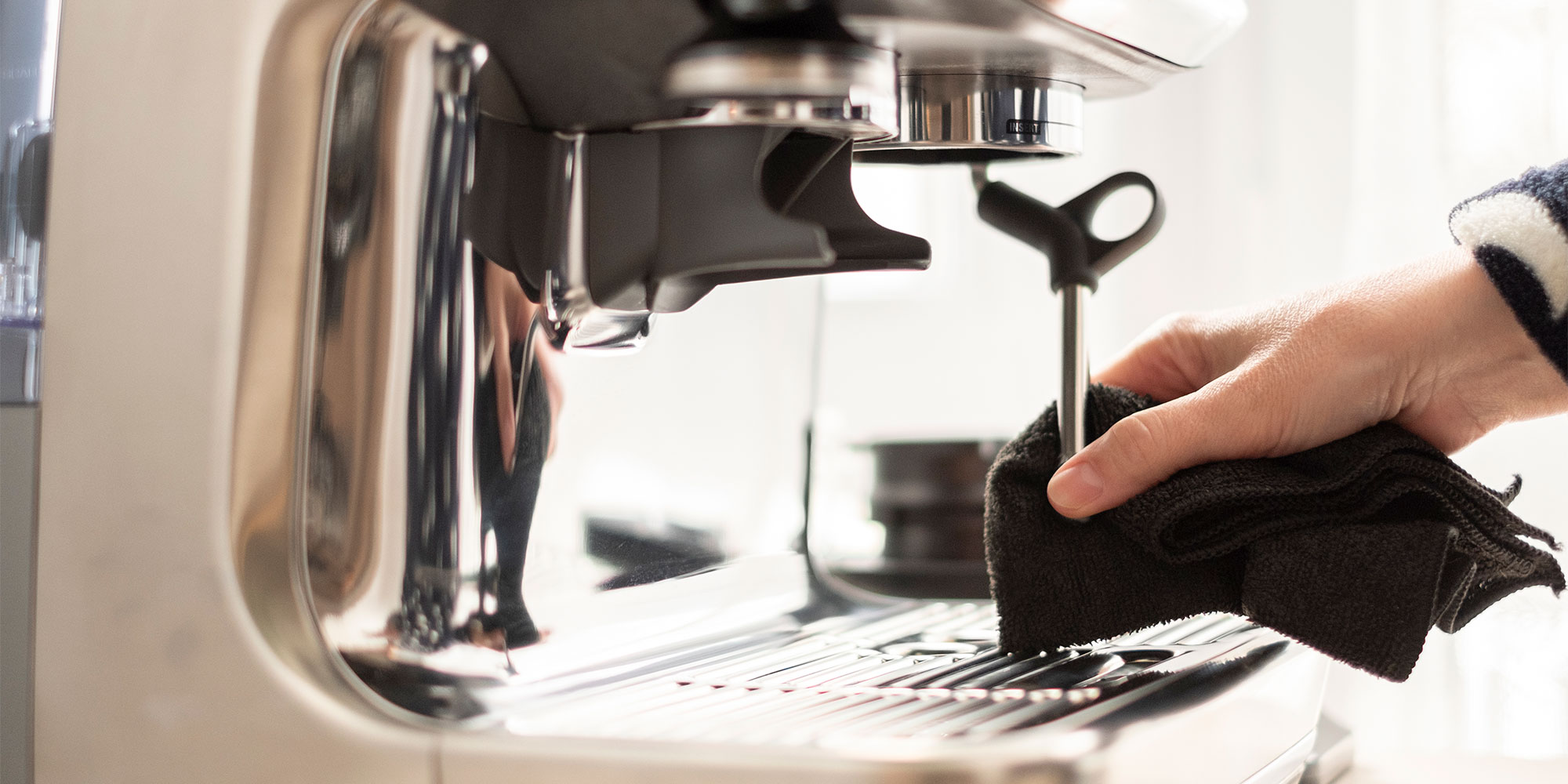
Credit: www.which.co.uk
Step-by-step Vinegar Descaling
Descaling your coffee machine with vinegar is a simple, natural way to remove mineral buildup. This step-by-step guide shows how to use vinegar safely and effectively. Follow each step carefully for the best results and to keep your coffee tasting fresh.
Preparing The Machine
Start by turning off and unplugging your coffee machine. Remove any coffee grounds and filters from the basket. Make sure the carafe is empty and clean. This preparation helps the vinegar solution work better and prevents clogging.
Mixing Vinegar And Water
Mix equal parts white vinegar and water. Use enough solution to fill the water reservoir of your machine. This mixture dissolves mineral deposits inside the machine without harming it. Avoid using undiluted vinegar as it might be too strong.
Running The Brew Cycle
Pour the vinegar and water solution into the water reservoir. Turn on the coffee machine and run a full brew cycle. Allow the solution to pass through the machine as if you were making coffee. This process cleans the internal parts from scale and buildup.
Rinsing The Machine Thoroughly
After the vinegar cycle ends, discard the solution from the carafe. Fill the reservoir with fresh clean water only. Run at least two or three full brew cycles to rinse out all vinegar residues. Proper rinsing prevents any vinegar taste in your next coffee.
Using Commercial Descalers
Using commercial descalers offers a reliable way to clean your coffee machine. These products are made specifically to remove mineral buildup safely. They help keep your machine working well without damaging internal parts. Many coffee machine owners prefer commercial descalers over home remedies for consistent results.
These descalers often contain ingredients that dissolve limescale quickly. They also neutralize odors and leave no residue. Using them regularly can improve coffee taste and machine lifespan.
Manufacturer Recommendations
Always check your coffee machine’s manual before using any descaler. Some manufacturers require specific products. Using the wrong cleaner may void your warranty or harm the machine. Follow the brand’s guidelines for safe descaling. This ensures you protect your investment and maintain optimal machine performance.
Preparation And Usage
Mix the commercial descaler with water as directed on the label. Pour the solution into the water reservoir. Start the machine’s descaling cycle or run a normal brew cycle if no specific mode exists. Let the solution work through the system to dissolve scale deposits. Avoid shortcuts to ensure a thorough clean.
Rinsing And Maintenance
After descaling, rinse the machine thoroughly. Run several cycles with fresh water to remove all cleaner traces. This step prevents taste changes in your coffee. Regular maintenance after descaling keeps the machine in good condition. It also helps avoid future buildup and costly repairs.
Benefits Of Regular Descaling
Regular descaling keeps your coffee machine in top shape. It removes mineral buildup that harms the machine and coffee taste. Descaling prevents blockages and maintains smooth operation. Following a descaling routine benefits your coffee experience and machine health.
Improved Coffee Flavor
Mineral deposits affect coffee taste. They make coffee bitter or strange. Removing scale helps coffee taste fresh and clean. You enjoy richer and smoother coffee with regular descaling.
Enhanced Machine Performance
Scale buildup blocks water flow inside the machine. It slows down brewing and causes errors. Descaling clears these blockages for better water flow. The machine works faster and more efficiently after descaling.
Prolonged Machine Lifespan
Mineral deposits stress machine parts over time. This leads to breakdowns or costly repairs. Regular descaling protects internal parts from damage. It extends the life of your coffee machine and saves money.
Alternatives To Vinegar
Vinegar is a popular choice for descaling coffee machines. Still, some prefer gentler or more effective options. Alternatives to vinegar offer safe ways to clean your coffee maker. These options remove mineral buildup without strong odors or potential damage. Explore three main alternatives below for descaling your coffee machine.
Citric Acid Solutions
Citric acid is a natural, mild acid found in citrus fruits. It dissolves limescale without harsh smells. You can buy powdered citric acid online or at stores. Simply mix it with water and run through your coffee machine. Citric acid cleans well and leaves no strong aftertaste. It is safe for most coffee makers and easy to use.
Lemon-based Descalers
Lemon juice works similarly to citric acid but is less concentrated. Fresh lemon juice or lemon juice concentrate can be mixed with water. This solution naturally breaks down mineral deposits inside the machine. Lemon-based descalers leave a fresh scent and are gentle on machine parts. Use them regularly to maintain a clean coffee maker.
Store-bought Descaling Products
Commercial descaling products are designed specifically for coffee machines. These solutions often contain safe acids and cleaning agents. They come with clear instructions to ensure proper use. Store-bought descalers work quickly and reduce risks of damage. Many brands offer options for different coffee machine types and water hardness levels.
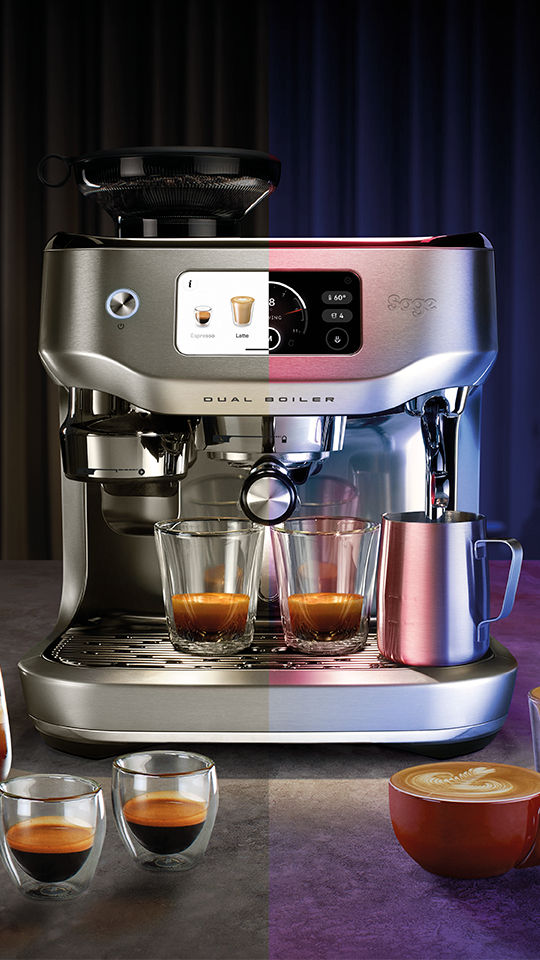
Credit: www.sageappliances.com
Potential Risks And Precautions
Descaling a coffee machine with vinegar is common but not without risks. Vinegar is acidic and can affect machine parts if used improperly. Knowing potential risks helps protect your coffee maker and ensures safe cleaning. Taking precautions can avoid damage and keep your warranty intact.
Warranty And Machine Compatibility
Check your coffee machine’s warranty before using vinegar. Some brands do not allow vinegar for descaling. Using vinegar might void your warranty or service agreement. Always read the user manual for approved cleaning methods. Use recommended descaling solutions if vinegar is not allowed.
Avoiding Damage To Components
Vinegar’s acidity can harm rubber seals and metal parts over time. Avoid leaving vinegar inside the machine for long periods. Use a diluted solution—equal parts vinegar and water. Do not use vinegar too often; it may cause corrosion. Regular maintenance with proper cleaners protects your machine’s parts.
Proper Rinsing To Remove Residue
Rinse the coffee machine thoroughly after descaling with vinegar. Run at least two or three full cycles of clean water. This step removes vinegar taste and smell from the machine. Incomplete rinsing can affect coffee flavor and cause health concerns. Always ensure no vinegar residue remains before brewing coffee.

Credit: www.wikihow.com
Frequently Asked Questions
Is It Okay To Descale A Coffee Machine With Vinegar?
Yes, descaling a coffee machine with vinegar is safe and effective. Use equal parts white vinegar and water. Run a brew cycle, discard the mixture, then rinse with fresh water several times to remove residue. Always check your machine’s manual for specific recommendations.
What’s The Best Way To Descale A Coffee Maker?
Remove coffee grounds first. Fill the reservoir with equal parts white vinegar and water. Run a full brew cycle. Discard the solution. Rinse by running two to three cycles with fresh water. Use commercial descaler if recommended by the manufacturer.
This keeps your coffee maker clean and efficient.
What Is A Good Alternative To Descaling Solution For Coffee Machines?
A good alternative to descaling solution is white vinegar mixed with water. It effectively removes mineral buildup and is safe for most machines.
Is Citric Acid Or Vinegar Better For Descaling?
Citric acid descales faster and leaves less odor than vinegar. Vinegar is cheaper but may leave a strong smell. Both effectively remove limescale.
Conclusion
Descaling a coffee machine with vinegar can be safe if done correctly. Always use a mix of equal parts water and vinegar. Run multiple rinse cycles afterward to remove any leftover taste. Avoid using vinegar if your machine’s manual advises against it.
Regular descaling helps keep your coffee tasting fresh and your machine working well. Simple care extends your coffee maker’s life and performance. Choose the right method for your machine and clean it often.
